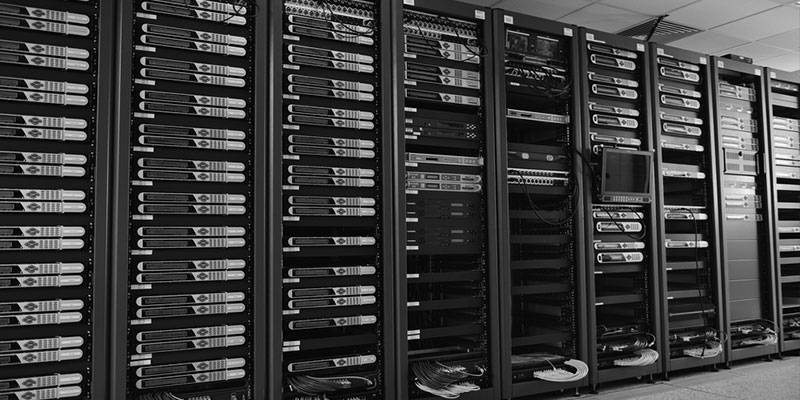In the fast-paced and ever-evolving landscape of digital technology, businesses are continually seeking ways to future-proof their infrastructure. The choice of hosting plays a pivotal role in this endeavor, and one option that stands out for its resilience and adaptability is the use of bare metal servers. In this in-depth exploration, we will uncover why bare metal servers are becoming the preferred choice for future-proofing your infrastructure and ensuring that your digital foundation is ready for whatever lies ahead.
The Evolution of Infrastructure Needs
As businesses scale and evolve, so do their infrastructure requirements. The digital ecosystem is no longer a static landscape; it’s a dynamic terrain that demands flexibility, scalability, and adaptability. Traditional hosting solutions, while effective for many scenarios, may fall short when it comes to meeting the evolving needs of modern enterprises.
Bare metal servers, a robust solution that provides a dedicated server to a single tenant, offering unparalleled control and performance. Let’s delve into the key reasons why opting for bare metal servers can future-proof your infrastructure.
1. Unmatched Performance
One of the primary advantages of bare metal servers is their unparalleled performance. In a world where milliseconds matter, especially for resource-intensive applications and databases, bare metal hosting provider delivers the raw computing power needed to deliver lightning-fast response times.
Unlike virtualized environments where resources are shared among multiple users, bare metal servers ensure that all the computing power, memory, and storage are exclusively dedicated to your applications. This translates to consistent and reliable performance, a critical factor as businesses grow and face increasing demands on their digital infrastructure.
2. Scalability Without Compromise
Scalability is a key consideration for any business looking to future-proof its infrastructure. Bare metal servers provide the perfect balance between scalability and performance. As your business expands and your resource requirements increase, bare metal servers allow you to scale up seamlessly by adding more servers to your infrastructure.
This flexibility ensures that your infrastructure can accommodate growing workloads without compromising on performance. Whether you’re experiencing a surge in website traffic or deploying resource-intensive applications, bare metal servers can scale with your business, providing a foundation that adapts to your evolving needs.
3. Enhanced Security and Compliance
The digital landscape is fraught with security challenges, and businesses must prioritize the protection of their sensitive data. Bare metal servers offer a higher level of security compared to shared or virtualized environments. With no neighbors to share the physical hardware, the risk of security vulnerabilities stemming from co-tenancy is significantly reduced.
Additionally, for businesses operating in regulated industries, such as finance or healthcare, where compliance with strict security standards is paramount, bare metal servers provide an ideal solution. The dedicated nature of these servers ensures greater control over security measures, making it easier to implement and enforce compliance standards.
4. Customization for Optimal Performance
Every business has unique requirements, and a one-size-fits-all approach to infrastructure may not be sufficient. Bare metal servers shine in their ability to be customized according to specific needs. From choosing the hardware specifications to configuring the operating system and applications, businesses have granular control over their infrastructure.
This level of customization is particularly advantageous for applications with specific resource demands. Whether you’re running a complex database, machine learning algorithms, or high-performance computing tasks, bare metal servers can be tailored to meet the exact specifications of your workloads.
5. Geographic Redundancy and Disaster Recovery
As businesses expand globally, ensuring the availability of services across different geographical regions becomes crucial. Bare metal servers enable businesses to deploy infrastructure in multiple data centers, providing geographic redundancy. This not only improves the reliability of services but also enhances disaster recovery capabilities.
In the event of a localized outage or disaster, having redundant bare metal servers in diverse locations allows for seamless failover, ensuring minimal disruption to operations. This level of geographic redundancy is a strategic move to future-proof against unforeseen events that may impact the availability of digital services.
6. Future Technologies and Compatibility
In the fast-paced world of technology, tomorrow’s innovations can quickly become today’s necessities. Bare metal servers, with their dedicated and versatile architecture, are well-positioned to integrate seamlessly with emerging technologies.
Whether it’s the adoption of advanced hardware accelerators, the integration of artificial intelligence, or the deployment of containerized applications, bare metal servers provide the foundation for embracing future technologies without the constraints often associated with virtualized environments.
Conclusion: A Resilient Foundation for Tomorrow’s Challenges
In the race to future-proof digital infrastructure, the case for bare metal servers is compelling. These dedicated and performance-oriented solutions offer a resilient foundation that adapts to the evolving needs of businesses. From providing unmatched performance and scalability to enhancing security and facilitating customization, bare metal servers address the challenges of today while preparing for the uncertainties of tomorrow.
As businesses navigate the complexities of a rapidly changing digital landscape, investing in bare metal servers is an investment in a future-ready infrastructure. It’s a strategic choice that empowers businesses to scale, innovate, and tackle the challenges of an ever-changing technological landscape with confidence. In the journey to future-proof your infrastructure, the bare metal server emerges not just as a solution but as a resilient ally, ready to meet the demands of the digital future.
